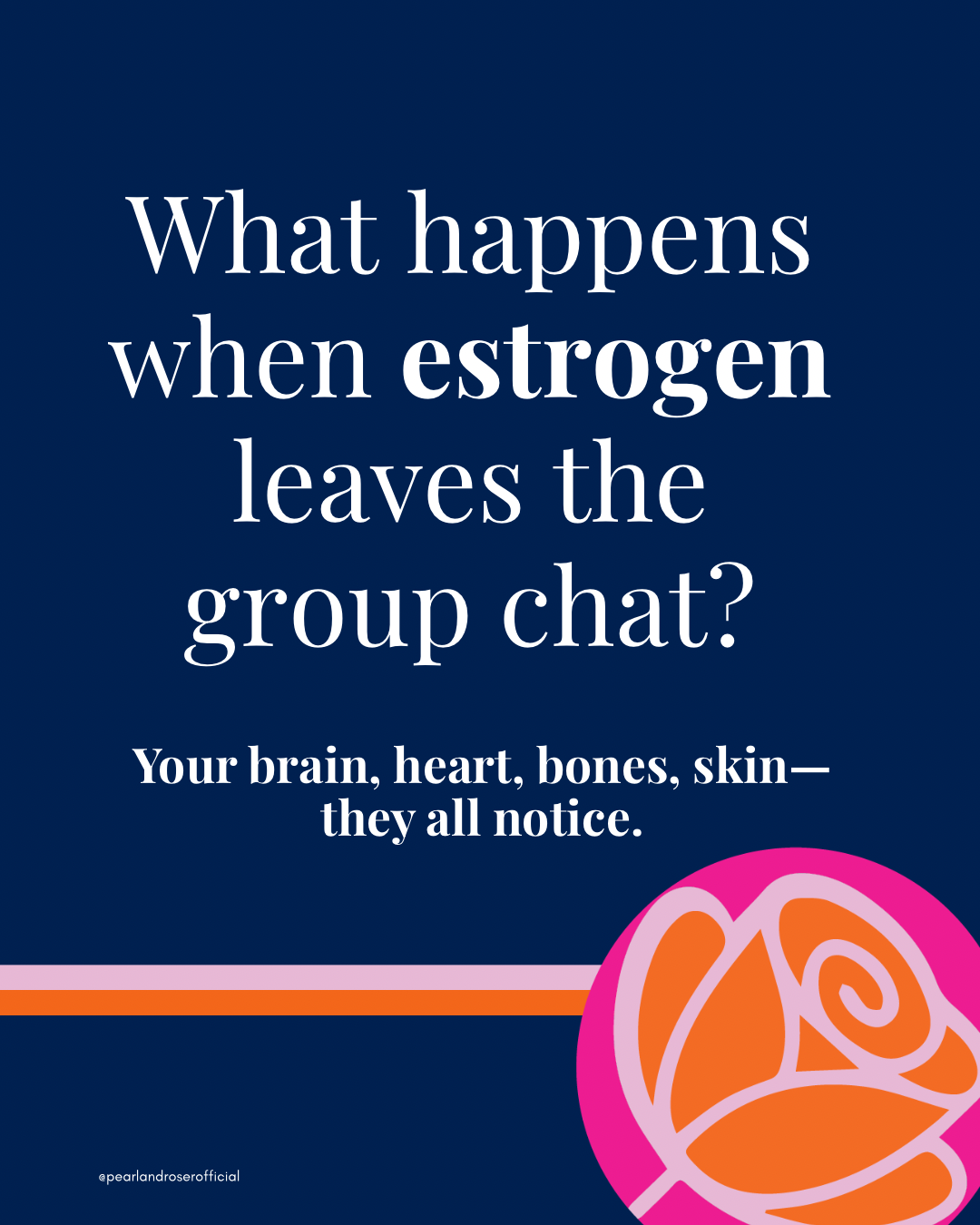Wait…Estrogen Effects What?
When we think about estrogen, most of us think of periods, puberty, and maybe pregnancy. But here’s the truth: estrogen is so much more than a reproductive hormone.
It’s a key player in almost every major system in your body — and when your estrogen levels start to decline in perimenopause or menopause, your brain, bones, heart, skin, mood (and more!) can all feel the shift.
This isn’t just a hormone issue. It’s a whole-body issue. And understanding it can help you take back control.
What Does Estrogen Actually Do?
Estrogen plays a protective, regulatory role in your body — and supports much more than just your cycle.
Here’s how:
🧠Brain + Mood
Estrogen helps regulate mood, memory, and cognitive function. Many women report brain fog, forgetfulness, increased anxiety, and sleep issues as estrogen declines.
❤️Heart + Cholesterol
Estrogen helps keep blood vessels flexible and supports healthy cholesterol levels. When estrogen drops, your risk of heart disease can increase — which is especially important since heart disease is the leading cause of death in women.
🦴Bone Health
Estrogen helps maintain bone density. After menopause, the loss of estrogen accelerates bone loss — which is why osteoporosis risk jumps significantly.
💧Skin, Joints + Bladder
Estrogen boosts collagen production (hello, glow), supports joint health, and helps maintain the health of vaginal and bladder tissues. When levels drop, women may experience vaginal dryness, painful sex, UTIs, and joint stiffness.
It’s Not “Just Aging” — It’s Estrogen
Many of the symptoms we chalk up to “just getting older” are actually the result of estrogen declining.
If you’re experiencing brain fog, hot flashes, sleep disruption, anxiety, vaginal dryness, or urinary urgency — this could all be connected to hormonal shifts.
Is Estrogen Therapy Safe?
Let’s talk facts — not fear.
For most healthy women under 60 or within 10 years of menopause, systemic hormone therapy (HRT) is considered safe — and may actually be protective for your heart, bones, and brain.
Recent research even shows that estrogen alone (without progesterone) may lower the risk of breast cancer in some women — especially those who have had a hysterectomy.
Vaginal estrogen — which is low-dose and used to treat symptoms like dryness, pain with sex, and UTIs — has a very low risk profile, even for women with a history of breast cancer. Newer studies show it may be safe for survivors using medications like tamoxifen, but every situation is unique.
Bottom Line: You Deserve a Conversation
We’re not here to push estrogen. We’re here to say: you deserve options.
Too many women are dismissed, misinformed, or told to “just deal with it.” But midlife isn’t about suffering — it’s about thriving.
If you’re struggling with symptoms or unsure about your options, start the conversation. Talk to a provider who understands midlife women and is up to date on the latest hormone research. You deserve individualized care — not a blanket “no.”
💗 Let’s Keep Talking
If this post opened your eyes, you’re not alone — and you’re not crazy.
💬 Share this with a friend navigating perimenopause or menopause
📌 Bookmark it for your next doctor’s appointment
✨ And follow @pearlandroseofficial for real talk, expert insights, and joyful connection through all things midlife
Midlife isn’t a crisis — it’s a celebration. Let’s treat it that way.

